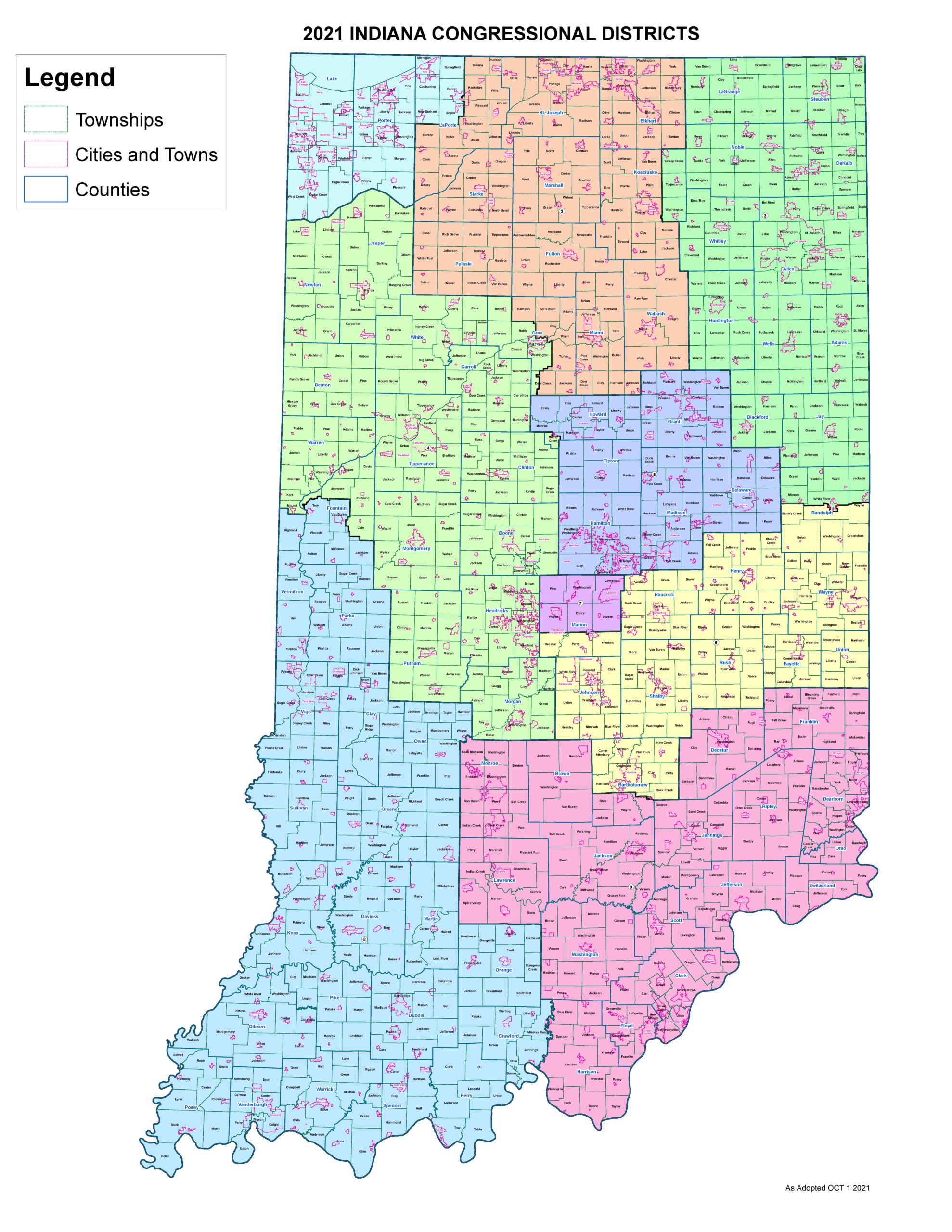The redistricting of state legislative maps is raising concern among Democrats and voting rights advocacy groups.
The redistricting is being carried out by state Republicans who hold a super majority in both the House and Senate. On Friday, October 1, the Senate voted 36-12 to adopt House Enrolled Act 1581 redistricting plan.
Later that day the Republican controlled House voted 64-25 to adopt the measure.
The redrawing of the legislative maps happens every 10 years following the Census count and is done by the political party in the majority.
Despite calls for a bi-partisan effort in the redistricting, the Republican supermajority in the House of the Indiana General Assembly voted to push forward the partisan proposal.
To bring further attention to the issue and to inform the public of what is at stake, Senator Eddie Melton held a community meeting. He was joined at the meeting by Representative Ragen Hatcher and Senator J.D. Ford from Indianapolis.
Ford served as a ranking minority member of the Senate Elections Committee and said during meetings around the state concerns were voiced about the fairness of the election process. “One of the themes we heard from Hoosiers across the state is that we want a fair, open and transparent election process. I am here to tell you that what we’ve gotten is not a clear and open process,” said Ford.
Recently the Republican controlled House voted 67-31 to adopt the Republican controlled redistricting plan.
Hatcher said the actions by the Republicans is partisan politics and not representation. “They don’t care at all what we have to say,” said Hatcher.
Earlier this week critics of the redistricting plan took their concerns to the Senate Election Committee. Among the dissenters were members of the NAACP State Conference.
Republicans claim the purpose of the redistricting plan was to draw compact districts and didn’t unnecessarily divide cities and counties between the District.
However, critics argue that the redistricting damaged areas where there was strong minority representation. The city of Fort Wayne, which has a sizable African American and Latino population, is being placed in districts with a larger rural white population comprising the voting populace. (should this be compromising?)
The new redistricting will take place next year, and the new map gives the GOP dominance in both the state Senate and House of Representatives and a majority in congressional seats by a 7-2 margin.
Previously Republicans have used their majorities to push several initiatives through the legislative branch of government on both the state and national levels.
The new legislative maps all but guarantee Republicans will maintain the 39-11 control in the state Senate and its lopsided 71-29 majority in the House.
The next redistricting will take place in 2030, and the latest census data indicate that the United States will continue to see a growing minority population that could defy the current efforts to dilute their vote.
Ford in recognizing what his party will have to contend with said, “At this point the only thing that can be done to slow down the damage the new Republican supermajority map will do is to vote Democratic in numbers that can’t be ignored.”






